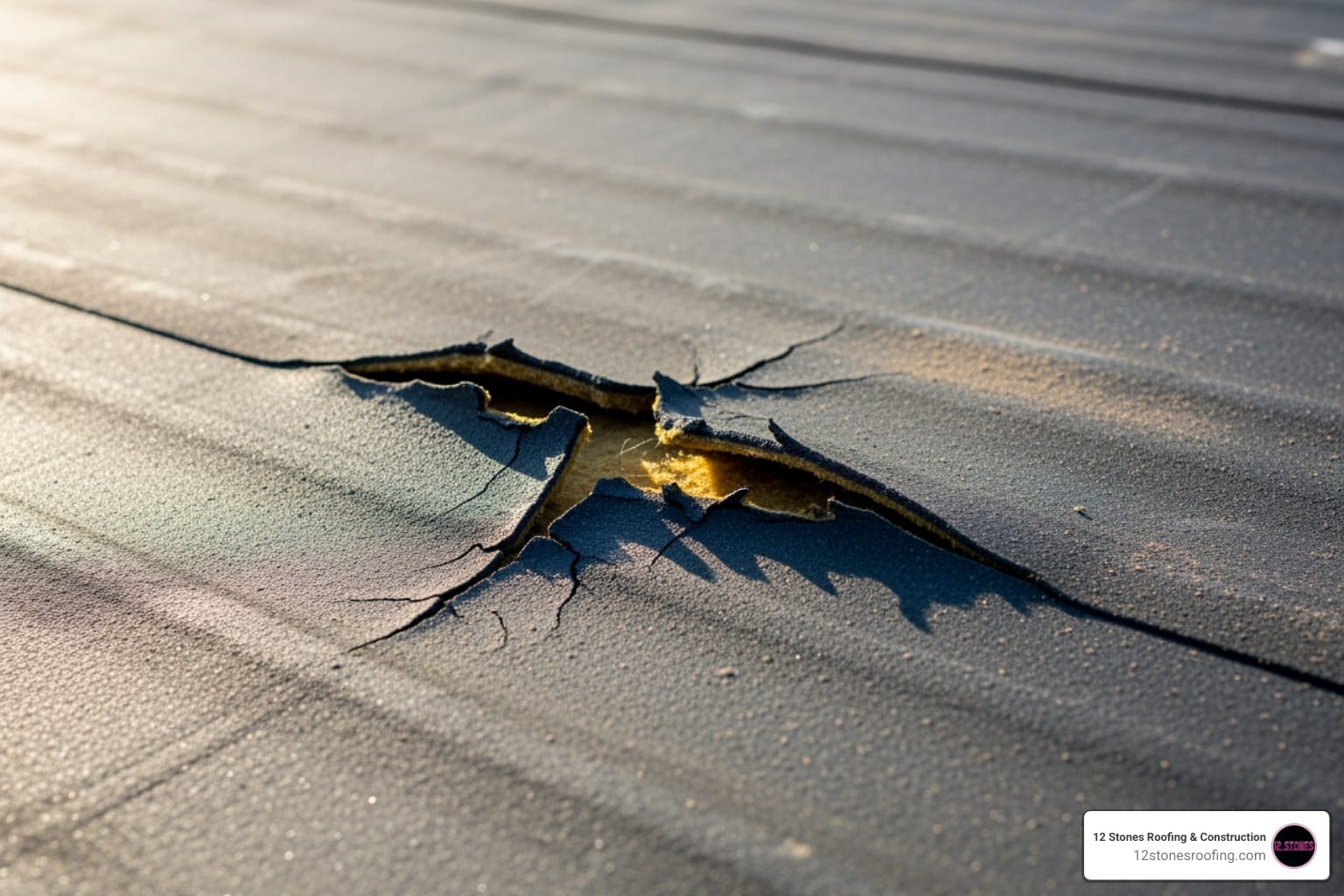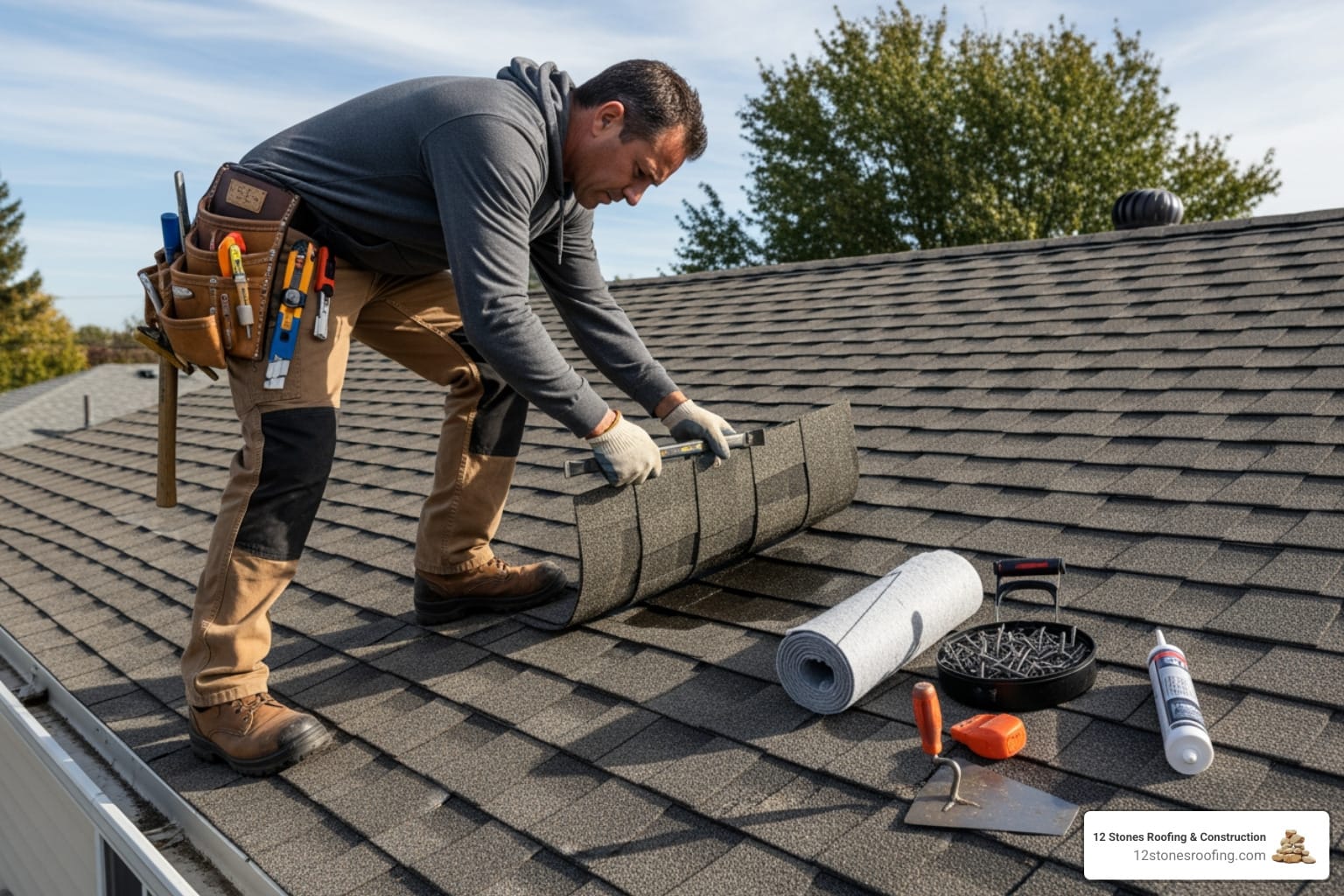Your Guide to Choosing the Right Flat Roofing Expert
Flat roofs are a practical choice for commercial and modern residential buildings in Pasadena, but their low-slope design makes hiring an experienced specialist critical. A poorly installed flat roof can lead to thousands of dollars in damage from water infiltration and structural issues. Finding a reliable team for your Pasadena roofing services is the first step to protecting your investment. Flat roofing contractors are professionals who install, repair, and maintain these systems using materials like TPO, EPDM, and Modified Bitumen to create a watertight, durable barrier.
When hiring a flat roofing contractor, prioritize those with:
- Proper licensing and insurance (liability and workers’ compensation).
- Manufacturer certifications from leading brands.
- Local experience with Pasadena’s climate and building codes.
- Detailed written estimates after a thorough inspection.
- Strong warranties covering both workmanship and materials.
- A proven track record with local references and reviews.
I’m Jason Roberts, Owner of 12 Stones Roofing & Construction, a Service-Disabled Veteran-Owned firm in Pasadena, Texas. With over a decade of experience in specialized flat roofing systems, my team and I are committed to delivering quality craftsmanship and transparent service to help you make an informed hiring decision.
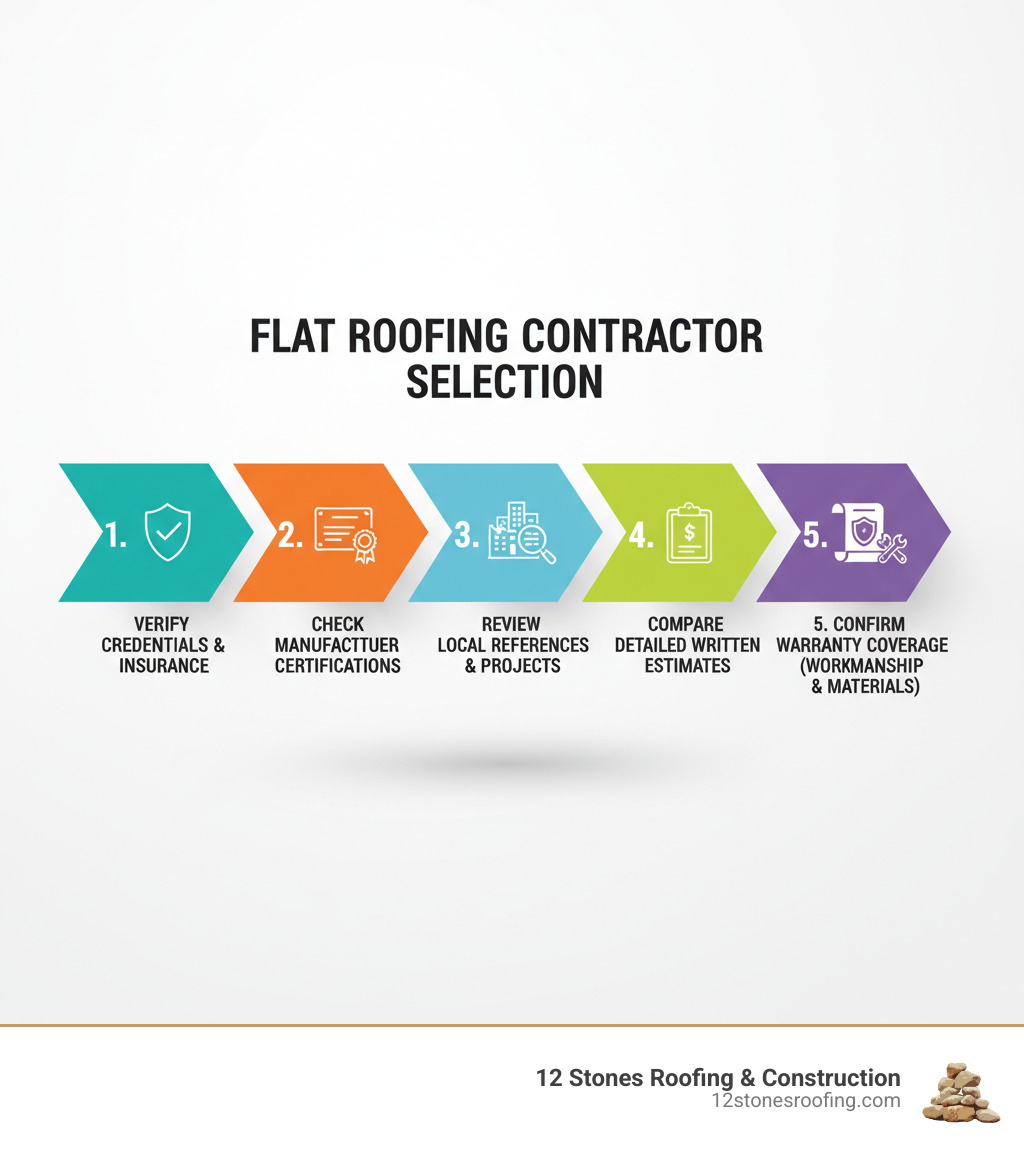
Understanding Your Flat Roof: Common Issues and Maintenance
A flat roof’s low slope makes it susceptible to specific problems, especially in the Texas climate. Unlike sloped roofs, they don’t shed water as quickly, making professional installation and regular maintenance essential for achieving a 25 to 50-year lifespan.
Signs Your Flat Roof Needs Immediate Attention
Your roof will often show warning signs before a major failure. Act quickly if you notice any of the following:
- Water Pooling (Ponding): Puddles that remain for more than 48 hours after rain indicate a drainage problem that will accelerate material decay.
- Leaks and Water Stains: The most obvious red flag, often caused by compromised seams or damaged flashing where the roof meets walls or vents.
- Cracks or Blisters: Surface imperfections caused by UV exposure or trapped moisture. Cracks allow water entry, while blisters signal underlying issues.
- Damaged Flashing: Torn or detached flashing around vents, walls, or skylights creates a direct path for water intrusion.
- Membrane Shrinkage: Over time, some materials can pull away from the edges, creating gaps that compromise the entire system.
- Rising Energy Bills: A damaged roof can lose insulation efficiency, forcing your HVAC system to work harder and increasing utility costs.
Ignoring these signs can lead to structural damage, mold, and expensive interior repairs. The moment you spot an issue, it’s time to call a professional.
How Texas Weather Impacts Your Flat Roof
The Texas climate presents unique challenges for flat roofing systems:
- Intense UV Exposure: Constant sun degrades materials, making them brittle and prone to cracking.
- Thermal Shock: Extreme temperature swings between day and night cause materials to expand and contract, stressing seams.
- Heavy Rainfall: Intense downpours can overwhelm drainage systems, leading to significant water pooling.
- Hail and High Winds: Severe storms can puncture membranes, lift edges, and tear flashing, causing immediate damage.
Expert installation using climate-appropriate materials is critical to withstand these conditions. For more on this, explore our complete guide to commercial roofing in Pasadena.
The Importance of Preventative Maintenance
Preventative maintenance is a small investment that prevents costly, large-scale problems. Regular care extends your roof’s lifespan, prevents expensive repairs, and is often required to keep manufacturer warranties valid. A well-maintained roof also improves energy efficiency, lowering utility bills.
Our maintenance plan includes:
- Regular Inspections: We recommend biannual checks (spring and fall) and after major storms.
- Debris Removal: Clearing leaves and branches prevents clogs and moisture buildup.
- Drainage Checks: Ensuring drains, scuppers, and gutters are clear and functional.
- Sealant and Membrane Repair: Proactively addressing minor cracks, punctures, or loose seams before they become major leaks.
To help you stay on top of your roof’s health, download our Roof Maintenance Checklist.
Comparing Flat Roofing Materials: What’s Best for Your Property?
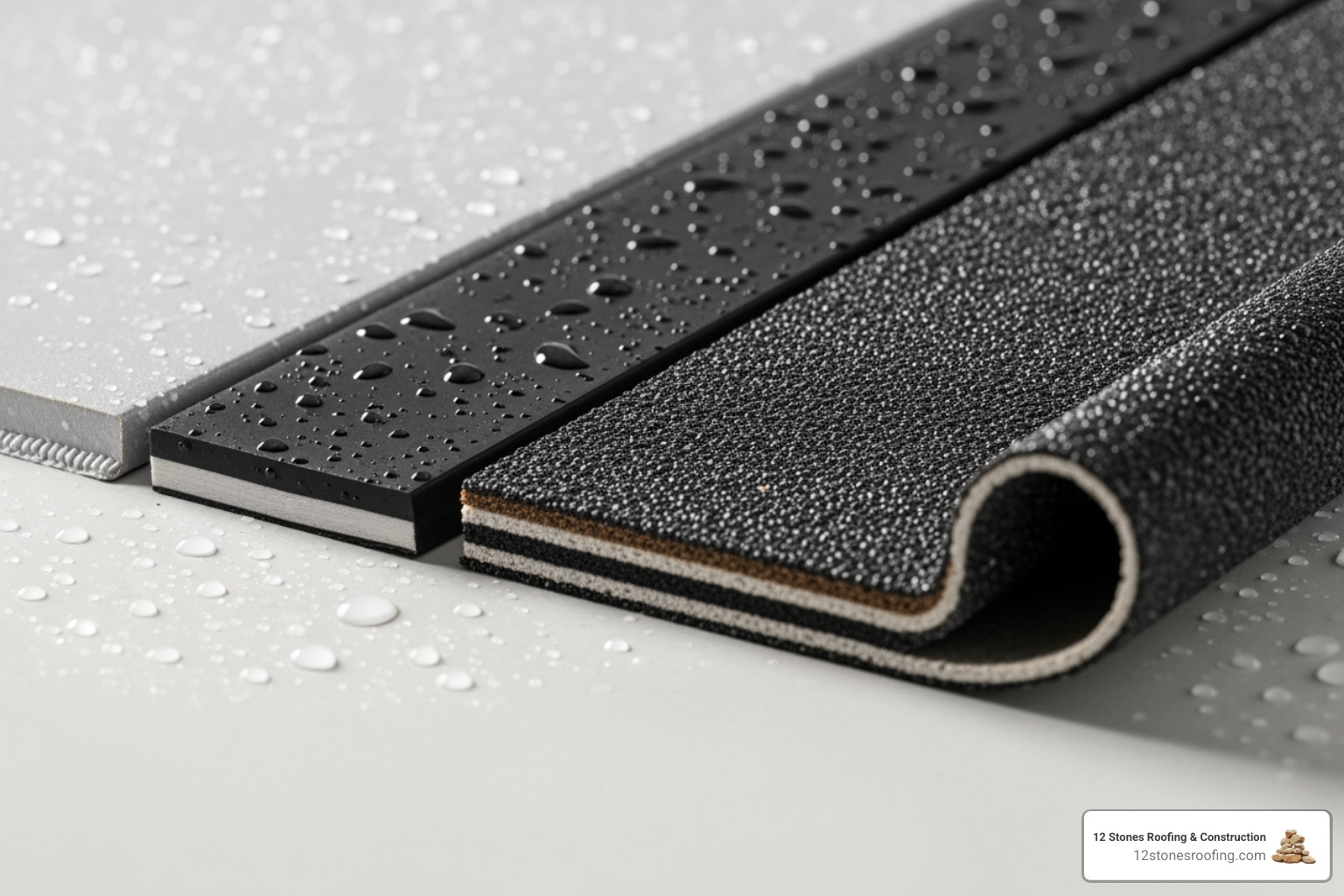
Choosing the right material impacts your building’s energy efficiency, durability, and long-term cost. When flat roofing contractors assess your property, they consider the local climate, building use, and budget to recommend the best system. For example, TPO’s high wind ratings are ideal for storm-prone areas like Pasadena, while EPDM offers a time-tested, budget-friendly solution.
Here’s how the most common materials compare:
| Material | Average Lifespan | Key Pros | Key Cons | Best For |
|---|---|---|---|---|
| TPO (Thermoplastic Olefin) | 20-30 years | Energy efficient, puncture/tear resistant, heat-welded seams, grease resistant, high wind ratings | Higher upfront cost, requires professional installation | Storm-prone areas, energy-conscious owners, restaurants |
| EPDM (Ethylene Propylene Diene Monomer) | 25-50 years | Proven durability, cost-effective, flexible in cold, simple installation | Vulnerable to punctures, seams can be weak points, absorbs heat | Budget-conscious projects, areas with temperature fluctuations |
| Modified Bitumen | 20-25 years | Multi-layer protection, excellent waterproofing, durable and flexible | Torch-down application requires skill, heavy, more seams | Industrial buildings, areas with heavy rainfall |
| PVC (Polyvinyl Chloride) | 20-30 years | Flexible, lightweight, high reflectivity, can be installed over existing roofs | Can be more expensive than EPDM, specific installation needs | Commercial properties, retrofit projects |
TPO (Thermoplastic Olefin) Roofing
TPO is a single-ply membrane known for its performance in demanding climates. Its white, reflective surface can reflect up to 80% of the sun’s UV rays, significantly lowering cooling costs in the Texas heat. The defining feature of TPO is its heat-welded seams, which fuse panels together to create a monolithic, watertight barrier that is often stronger than the membrane itself. This, combined with its puncture resistance and high wind ratings, makes it an excellent choice for protecting buildings against severe weather.
EPDM (Ethylene Propylene Diene Monomer) Roofing
Often called “rubber roofing,” EPDM has a proven track record of durability spanning over 50 years. It is one of the most cost-effective flat roofing options and remains flexible in a wide range of temperatures, which helps it withstand thermal shock. While its seams are typically sealed with adhesive and it can be more vulnerable to punctures than TPO, proper installation and maintenance make EPDM a reliable, long-lasting choice for many residential and commercial properties.
Modified Bitumen Roofing
Modified Bitumen is an asphalt-based, multi-layer system that provides robust, redundant protection against leaks. Polymers are added to the asphalt to improve flexibility and durability, making it highly resistant to water infiltration and physical damage. While traditional installation involves a torch-down method requiring skilled professionals, modern self-adhering options are also available. Its toughness makes it a popular choice for industrial buildings and roofs with heavy foot traffic.
What to Expect: The Repair and Installation Process
Understanding what your flat roofing contractors will do makes the experience less stressful. A professional’s approach should be methodical and transparent, whether for a targeted repair or a full roof replacement.
The Flat Roof Repair Process
When you call us at (832) 648-4375 for a repair, we follow a refined process:
- Thorough Damage Assessment: We conduct a comprehensive inspection to identify both obvious and hidden issues, ensuring we address the root cause of the problem, not just the symptoms.
- Detailed Repair Plan & Estimate: You receive a clear explanation of the necessary repairs, the materials to be used, and a transparent cost estimate. No surprises.
- Expert Execution: Our technicians use manufacturer-approved materials and industry best practices to perform a lasting repair, not a temporary patch.
- Final Quality Inspection: We test the repaired area and verify proper drainage to ensure your roof is watertight and ready for Texas weather.
Key Differences: Flat Roof Repair vs. Replacement
The “repair or replace” decision depends on the roof’s overall condition. Repair is ideal for localized damage when the rest of the roof is in good shape. This is a cost-effective solution for issues like a single puncture or damaged flashing.
Replacement is necessary for widespread damage, chronic leaks, or when a roof is near the end of its lifespan (typically 20+ years). This involves a full tear-off or a retrofit over the existing system. While more expensive upfront, replacement is a smarter long-term investment than repeated, costly repairs on a failing roof.
Consider replacement if:
- Your roof is over 20 years old.
- There are multiple leaks or problem areas.
- The repair estimate is over 30% of the cost of a new roof.
An economical alternative is a retrofit system. A new membrane, like PVC, can often be installed directly over your existing roof. This saves on tear-off costs, reduces project time, and can come with a new 20-year warranty, offering the benefits of a new roof at a lower price point.
How to Vet and Hire Top Flat Roofing Contractors
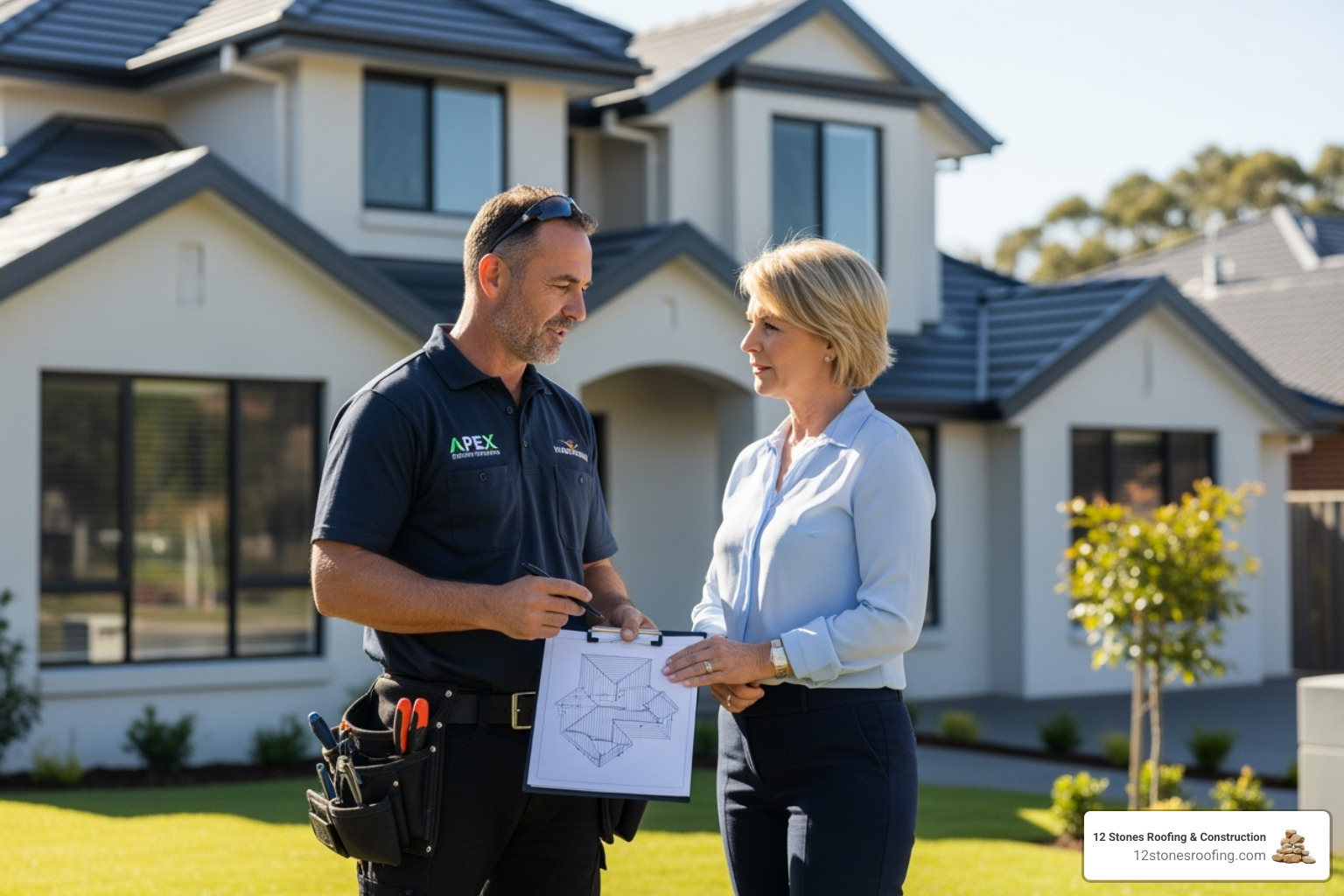
Your flat roof is only as good as the flat roofing contractors who install it. Vetting potential contractors on their experience, reputation, and quality is essential to protecting your investment. A skilled professional prevents future problems through meticulous workmanship and a commitment to your long-term satisfaction.
Why Hire Local Flat Roofing Contractors in Pasadena?
Choosing a local contractor offers distinct advantages:
- Knowledge of Local Codes: They are familiar with Pasadena’s building codes and permit requirements, ensuring your project is compliant.
- Experience with Texas Weather: Local roofers understand which materials and techniques best withstand our region’s intense sun, heavy rain, and high winds.
- Faster Emergency Response: A local team can respond quickly after a storm to assess damage and prevent further water intrusion.
- Community Accountability: Their reputation is built locally, driving them to deliver exceptional work. When you’re ready to work with a team that understands your area, find a trusted roofing contractor in Pasadena.
Essential Qualities of a Reputable Contractor
Look for these non-negotiable qualities:
- Proper Licensing and Insurance: Verify they carry general liability and workers’ compensation coverage.
- Manufacturer Certifications: Certifications from TPO, EPDM, or other manufacturers signal expertise and may open up better warranties.
- Proven Track Record: Check online reviews and ask for local references.
- Clear, Written Estimates: A professional provides a detailed, itemized estimate after a thorough inspection.
- Strong Warranties: Expect both a material warranty (20+ years) and a workmanship warranty (typically 10 years).
- Commitment to Safety: The contractor should follow all OSHA guidelines for fall protection and site safety. You can verify a contractor’s credentials through the National Roofing Contractors Association (NRCA) directory to find a certified roofer via the NRCA.
Understanding the Cost of Flat Roof Services
Flat roof costs vary based on several factors:
- Roof Size and Material Choice: Larger roofs and premium materials increase the cost.
- Extent of Damage: A simple repair is far less expensive than a full replacement.
- Labor and Complexity: Accessibility, the number of penetrations (vents, HVAC units), and insulation needs affect labor costs.
- Existing Roof Condition: A full tear-off of a saturated old roof adds disposal costs, whereas a retrofit can save money.
Always get at least three detailed, written estimates based on a thorough on-site inspection. Be wary of any contractor who gives a price over the phone or without seeing the roof—this is a major red flag and often leads to unexpected costs later.
Frequently Asked Questions about Flat Roofing
Property owners often have similar questions about their flat roofing systems. Here are answers to some of the most common inquiries we receive.
How long does a typical flat roof last?
A professionally installed flat roof can last from 25 to 50 years. The exact lifespan depends on the material, installation quality, and maintenance consistency. For example, single-ply systems like TPO and PVC often come with manufacturer warranties of up to 30 years and can easily exceed that with proper care. Regular inspections and prompt repairs are key to maximizing your roof’s longevity.
Can you walk on a flat roof?
Yes, modern flat roofing materials like TPO, PVC, and Modified Bitumen are designed to withstand foot traffic for maintenance. This accessibility is an advantage for servicing rooftop equipment. However, you should still take precautions: avoid dropping sharp tools, wear soft-soled shoes, and minimize unnecessary traffic. For areas with frequent access, installing designated walkway pads is recommended to protect the membrane.
How often should a flat roof be inspected?
A flat roof should be professionally inspected at least twice a year, ideally in the spring and fall. These seasonal checks identify issues before they escalate. Additionally, an inspection is crucial after any major weather event, such as a hailstorm or hurricane, to check for hidden damage like membrane bruising or lifted seams. Regular inspections are essential for extending your roof’s life and are often required to keep manufacturer warranties valid.
Secure Your Investment with an Expert Flat Roofing Team
Hiring a certified flat roofing contractor is the fastest way to extend roof lifespan, reduce unplanned repairs, and safeguard interior assets. The right team specifies materials for your exact use case, installs to manufacturer standards, and documents maintenance to keep warranties valid. Choosing the right professional delivers a durable, watertight system and ongoing support that protects your property through Texas weather cycles.
If you’re ready to partner with a team that prioritizes quality, transparency, and customer satisfaction, 12 Stones Roofing & Construction is here to help. For a comprehensive consultation on our Flat Roofing Services, we invite you to contact us online today. We’re ready to earn your trust and exceed your expectations.



